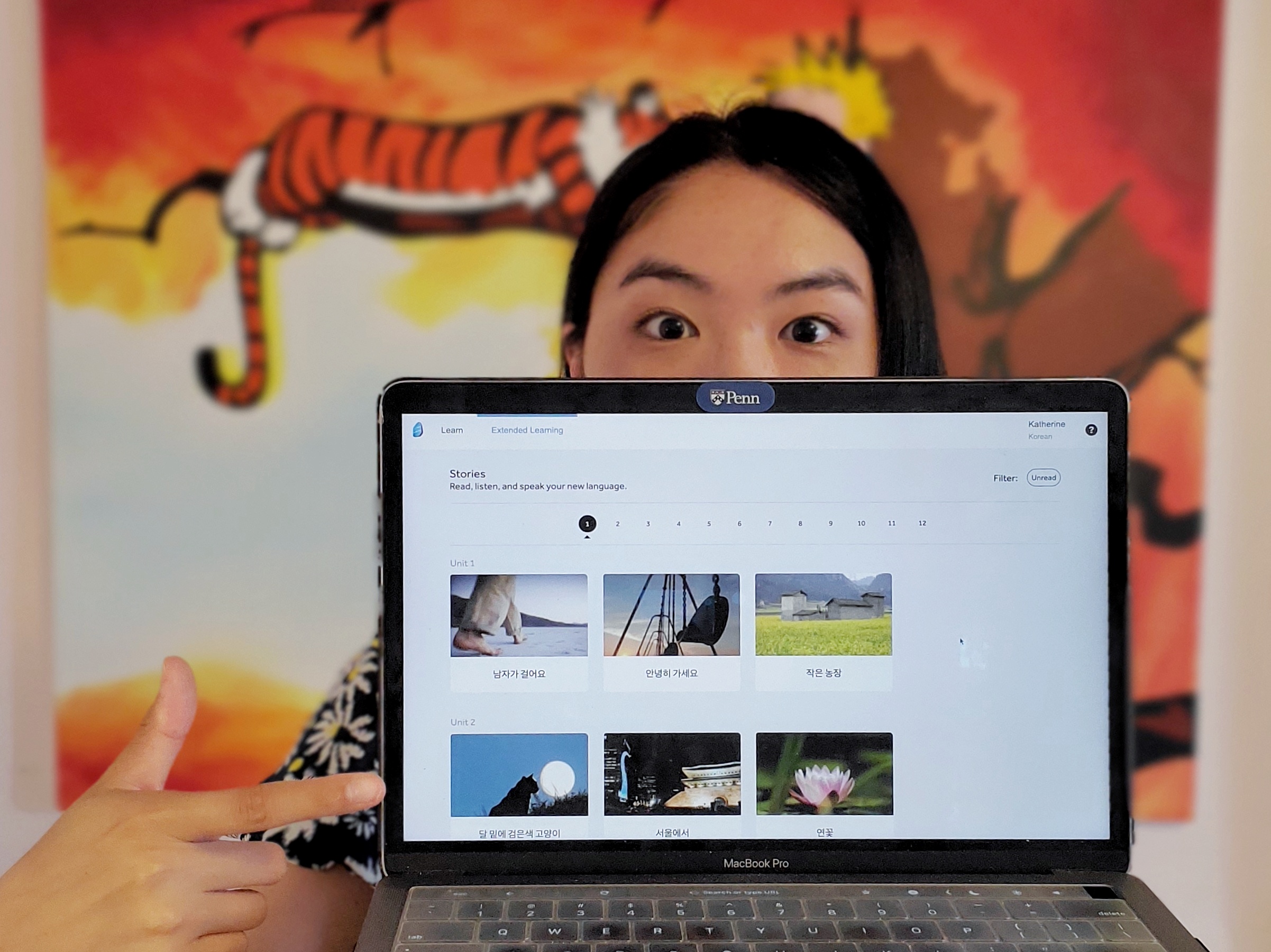A First Reflection on Virtual Internships
By: Kat Wang, SEAS ’23

Kat beginning a language-learning course for Korean on Rosetta Stone.
Nerdy Joy – Seoul, South Korea
I’m Kat and I’m interning at Nerdy Joy this summer.
Virtual internships certainly depart from the traditional in-person format, and I frequently reflected on the differences, both positive and negative, before starting this program. Now, a week into my internship, I am pleasantly surprised by the experience; there is nice flexibility in my schedule because of the asynchronous work, but I still feel a sense of purpose in creating this application day to day. Even though I have just begun, I have been able to jump right into programming. It is refreshing to put my skills to use and learn new skills as well, such as using Expo with React Native and building style sheets according to Figma wireframes.
Of course, the internship is not without its difficulties: in my first week with the company, I’ve learned that the startup is comprised of Turkish, English, and Korean native speakers, with little overlap in common languages. While this makes communication between team members a little difficult (not to mention having only a small window of time in which we can meet due to the drastic time zone differences), I feel grateful to be meeting with such a diverse team that is working to overcome these obstacles. I value clear communication and expectations; in working with Nerdy Joy, I am happy to report that the teams connect regularly and have planned each aspect of their company meticulously, even while the company is still in its nascent stages. On a side note, the language barrier has inspired me to start my Korean language course via Rosetta Stone (as pictured).
Admittedly, sometimes, it almost feels like we are in different worlds, meeting up to compare work culture and politics and the education system in our respective countries and discussing our progress and strategies as we handle battles on our own fronts. However, whenever I meet with the CEO, who is trilingual and thus often serves as the intermediary, I have been able to see their passion for reforming the education system a little at a time, a goal that transcends language barriers and cultural differences. This goes for a broader worldview as well: in this past year especially, I have been amazed by how quickly we adapt to technologies that allow us to connect to others across the world, whether it is Google Meet or Zoom or Rosetta Stone. So, despite the challenges, there’s something to be said about this new era of virtual internships.
The Global Research and Internship Program (GRIP) provides outstanding undergraduate and graduate students the opportunity to intern or conduct research abroad for 8 to 12 weeks over the summer. Participants gain career-enhancing experience and global exposure that is essential in a global workforce.